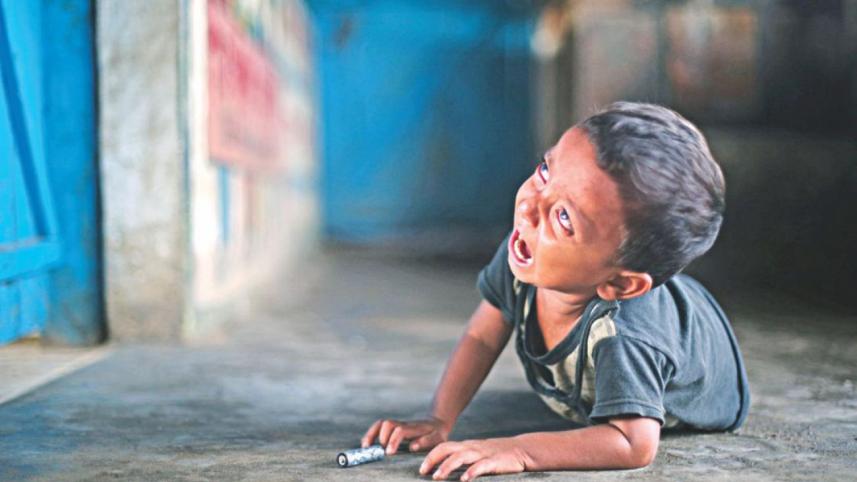Acute malnutrition among Rohingya children

UNICEF has said on Friday that it found high levels of acute malnutrition among children in the Rohingya refugee camps. Although we will have a clear understanding of the situation after we get the data of its nutrition survey in November, the picture we get from its current data is no less daunting.
Unicef and its partners have screened a total of 59,604 children at the camps as of October 25, with 1,970 identified as "severely acutely malnourished' and 6,971 as 'moderately acutely malnourished". And during the recent influx, among the 340 children screened by Unicef at the border, 33 were found to be severely acutely malnourished. According to Unicef, the combination of malnutrition, poor sanitary conditions, and disease in the refugee settlements will be disastrous for these children.
Although the government has carried out a massive vaccination programme against the diseases such as measles, diarrhea, cholera and pneumonia in the refugee camps, there have been reported cases of such diseases. And since diarrhoea and pneumonia exacerbates malnutrition, there is no alternative to continuing the vaccination programme. In addition, safe drinking water and sanitation must be made accessible to the refugees. At the same time, nutritious food should be made available for the infants and young children in the camps.
It's good to know that Unicef has already set up some nutrition treatment centres to treat the children who have been suffering from acute malnutrition. Other national and international organisations should also come forward to save the lives of the vulnerable children. Needless to say, acute malnutrition of children must be treated urgently, because if left untreated, the risk of death is high. Thus, we urge the government, Unicef and other organisations to provide the malnourished children with urgent life-saving care.



 For all latest news, follow The Daily Star's Google News channel.
For all latest news, follow The Daily Star's Google News channel.